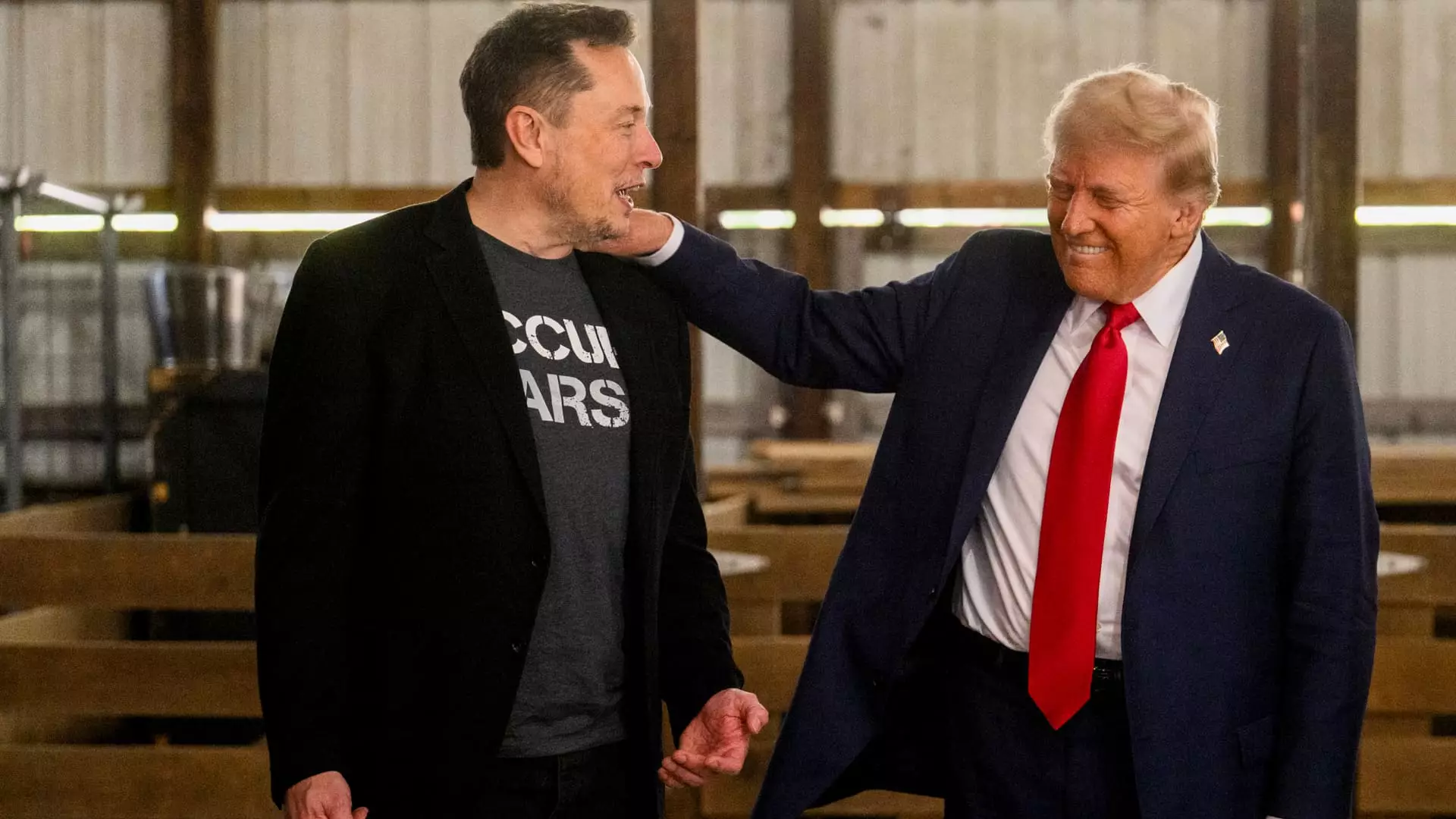In a noteworthy convergence of business and politics, Elon Musk, CEO of Tesla and SpaceX, made headlines by participating in his first meeting with President-elect Donald Trump and the House Republican conference. This meeting, which took place in Washington, D.C., underscores the increasing intertwining of influential figures from different spheres. As Trump assembled his administration following the elections, Musk’s presence became evident, indicating that the world’s richest man is not just a spectator but a significant player in shaping the future of the Republican agenda.
Musk, who has often been viewed through the lens of innovation, entrepreneurship, and technology, is stepping into political shoes that were previously unchartered for him. His ability to influence political decisions and policies could signal a shift in how the tech industry interacts with governmental structures. As he traveled to Washington aboard Trump’s aircraft from Florida, the symbolism of their alliance became clear—Musk is positioning himself as a key advisor during a pivotal time for the Republican Party.
During the gathering, Trump announced the formation of an external commission dubbed the “Department of Government Efficiency.” Alongside entrepreneur Vivek Ramaswamy, Musk is projected to lead this initiative aimed at eliminating bureaucratic red tape and optimizing government functions. This audacious move speaks to Trump’s longstanding rhetoric about reducing government waste—a narrative that resonates with many voters who view excessive bureaucracy as a barrier to progress.
Musk’s bold statement proclaiming that the initiative “will send shockwaves through the system” certainly raises eyebrows. It posits the idea that government operations require a significant overhaul, with Musk emphasizing that there exists a considerable number of individuals profiting from inefficiencies. This perspective not only critiques the current governmental structure but also positions Musk as a disruptive force, paralleling his ventures in the automotive and space industries, where innovation often upends traditional norms.
The timing of this meeting is crucial given the political landscape that evolved after the recent elections. With the Republican Party gaining control not only of the White House but potentially of the Senate as well, Musk’s growing prominence within this framework suggests a fusion of right-leaning policies with Silicon Valley’s technological advancements. The apparent shift to the right in American politics could redefine how entrepreneurs engage with legislative processes, and Musk’s involvement could serve as a blueprint for future collaborations between business leaders and political figures.
As House Republicans convene leadership elections, the potential nomination of Mike Johnson as Speaker reflects the party’s strategic maneuvers to solidify its influence. This backdrop of political realignment highlights the necessity for stakeholders like Musk to leverage their influence in shaping policies that favor both business and individual liberties.
Additionally, Trump’s planned meeting with President Biden represents a crucial step toward traditional political reconciliation—something that was largely absent following the 2020 elections. The significance of this meeting cannot be overstated as it embodies the peaceful transfer of power, an essential element of American democracy. Musk’s presence in these discussions might symbolize a call for collaboration amid political polarization.
On a personal note, the absence of Melania Trump from the trip also hints at complexities within the former first family that may impact Trump’s political strategy moving forward. This nuance illustrates that while politics may be a game of power, personal dynamics still play a critical role.
Ultimately, the merging of Musk’s entrepreneurial insight with Trump’s political ambitions raises questions about the future of government-business relations. Will Musk’s involvement lead to substantial reforms in governmental operations, or will it serve as merely a publicity stunt? The next few months will determine whether such collaborations yield tangible benefits or merely perpetuate the status quo.
As new policies emerge and the political landscape continues to evolve, one thing remains clear: the intersection of technology and politics, exemplified by figures like Musk, will undoubtedly shape the discourse in both fields. Whether embraced or criticized, this summons a broader conversation on the role of innovation in governance, echoing the age-old question of how best to balance progress with accountability in a rapidly changing world.


Leave a Reply